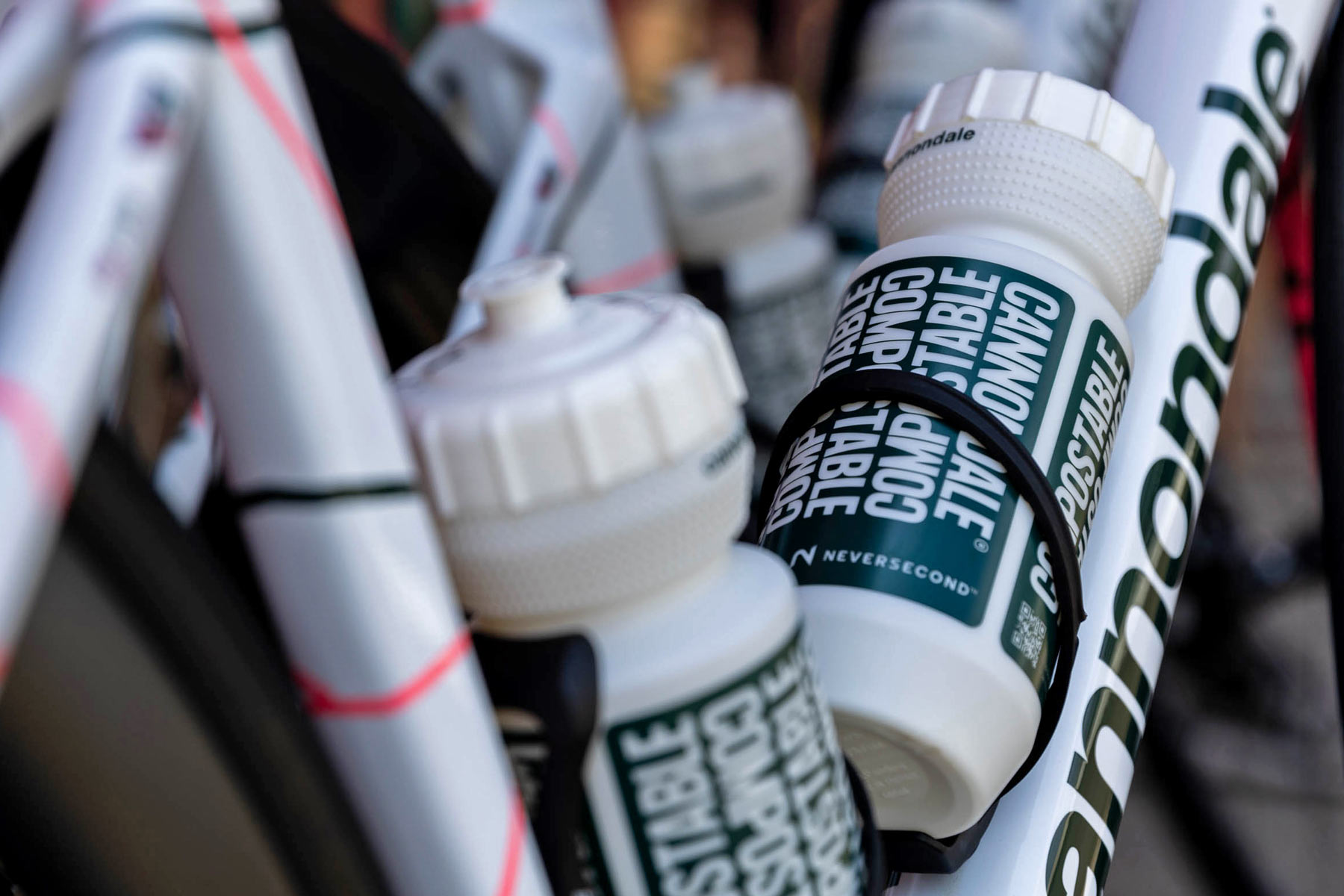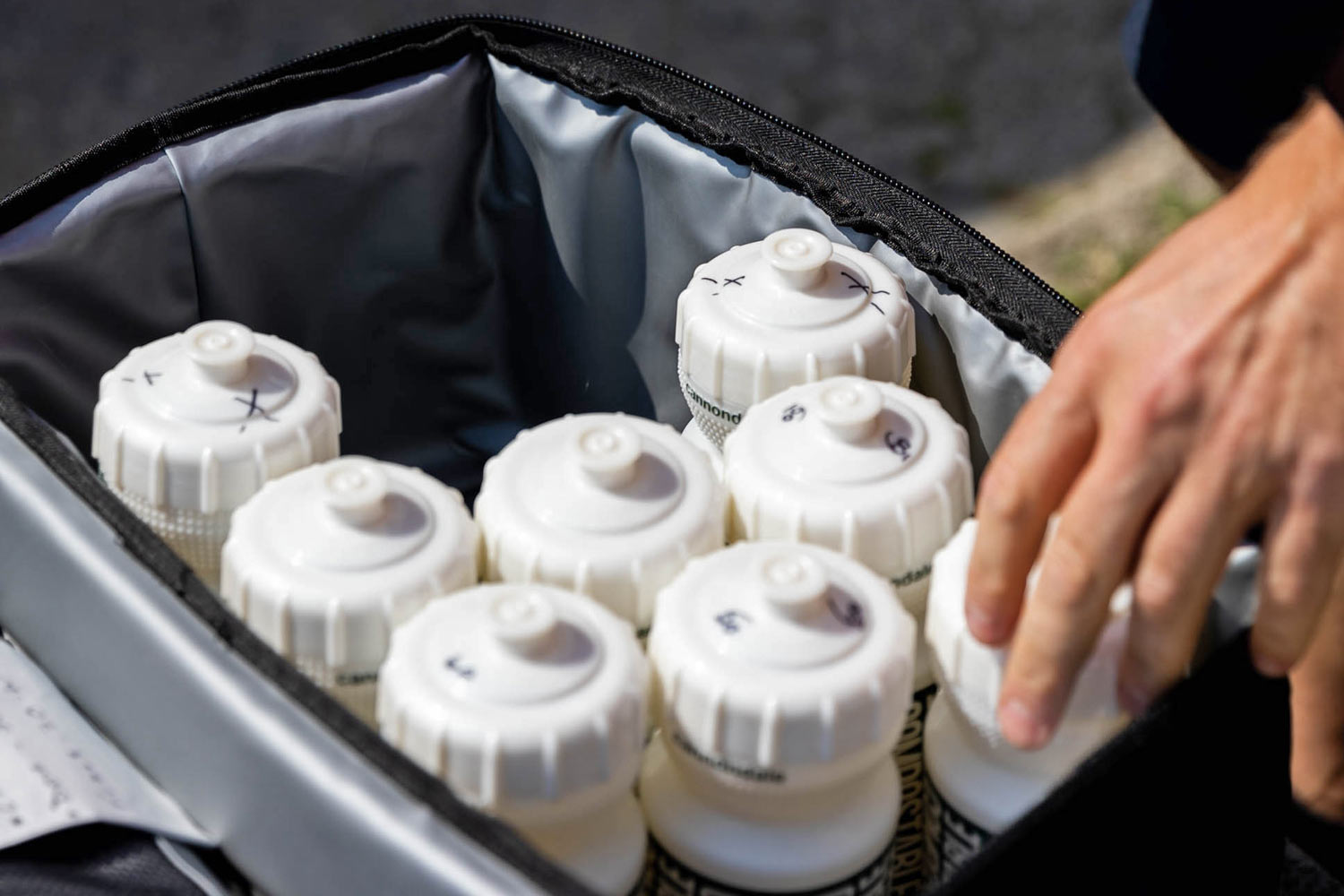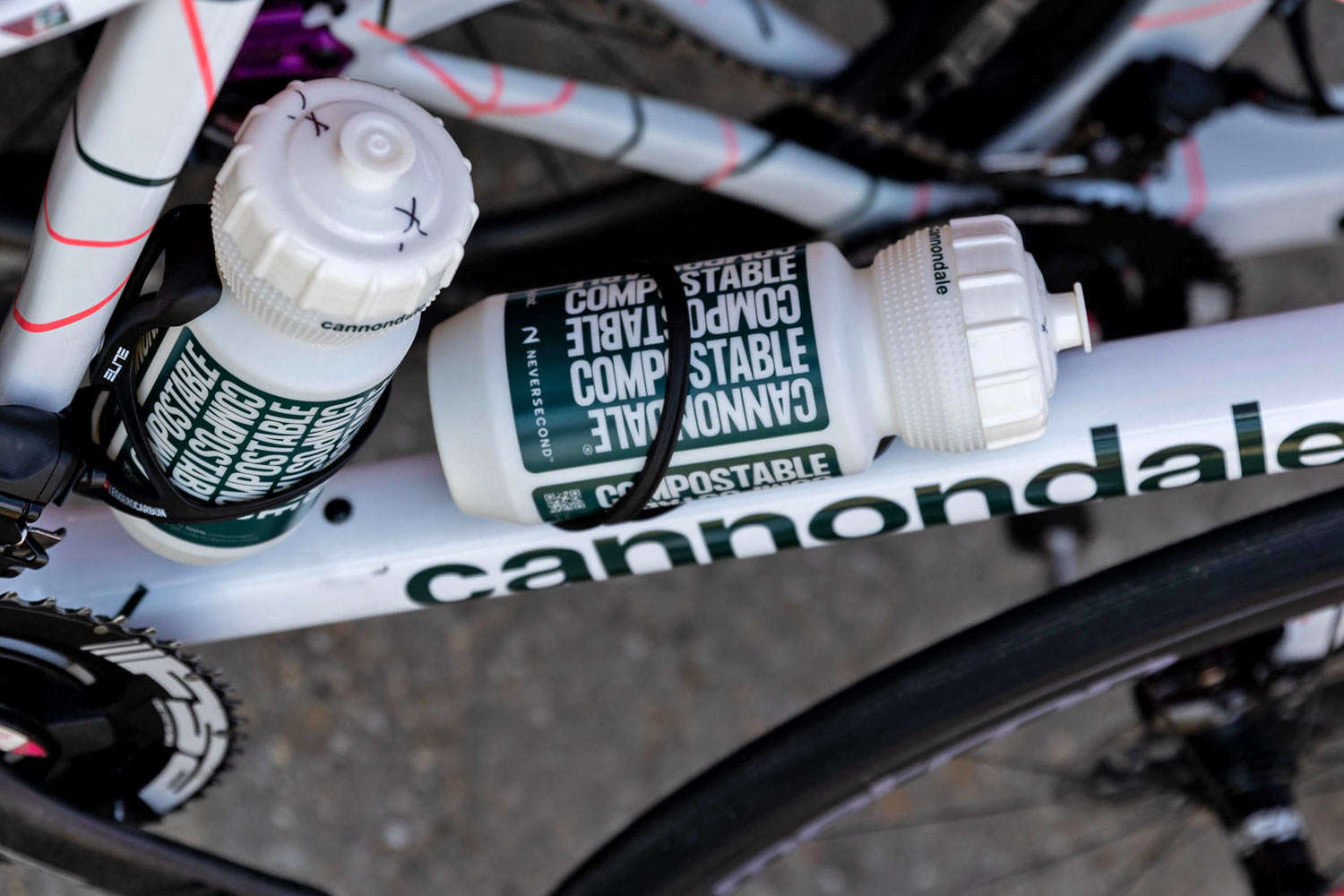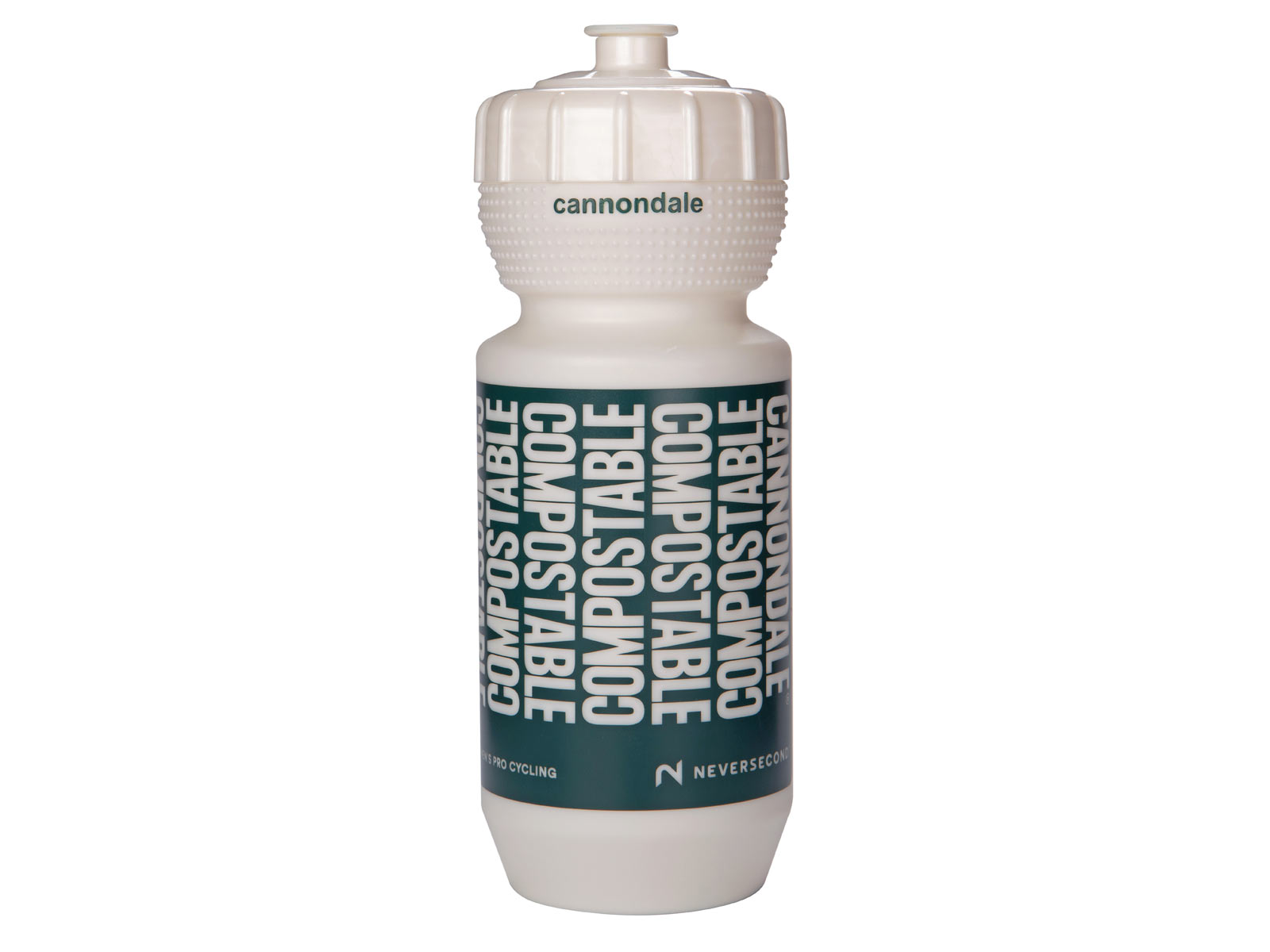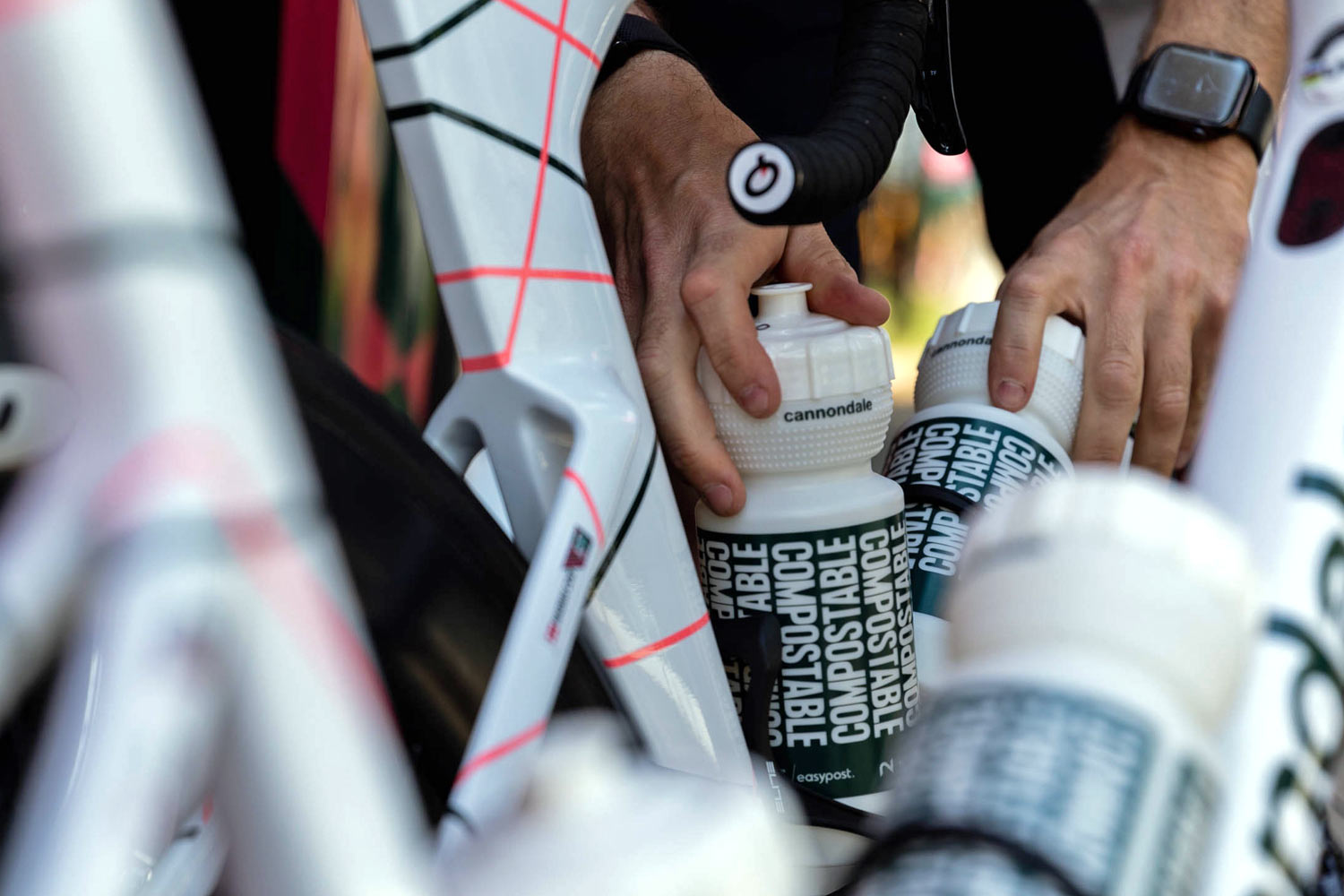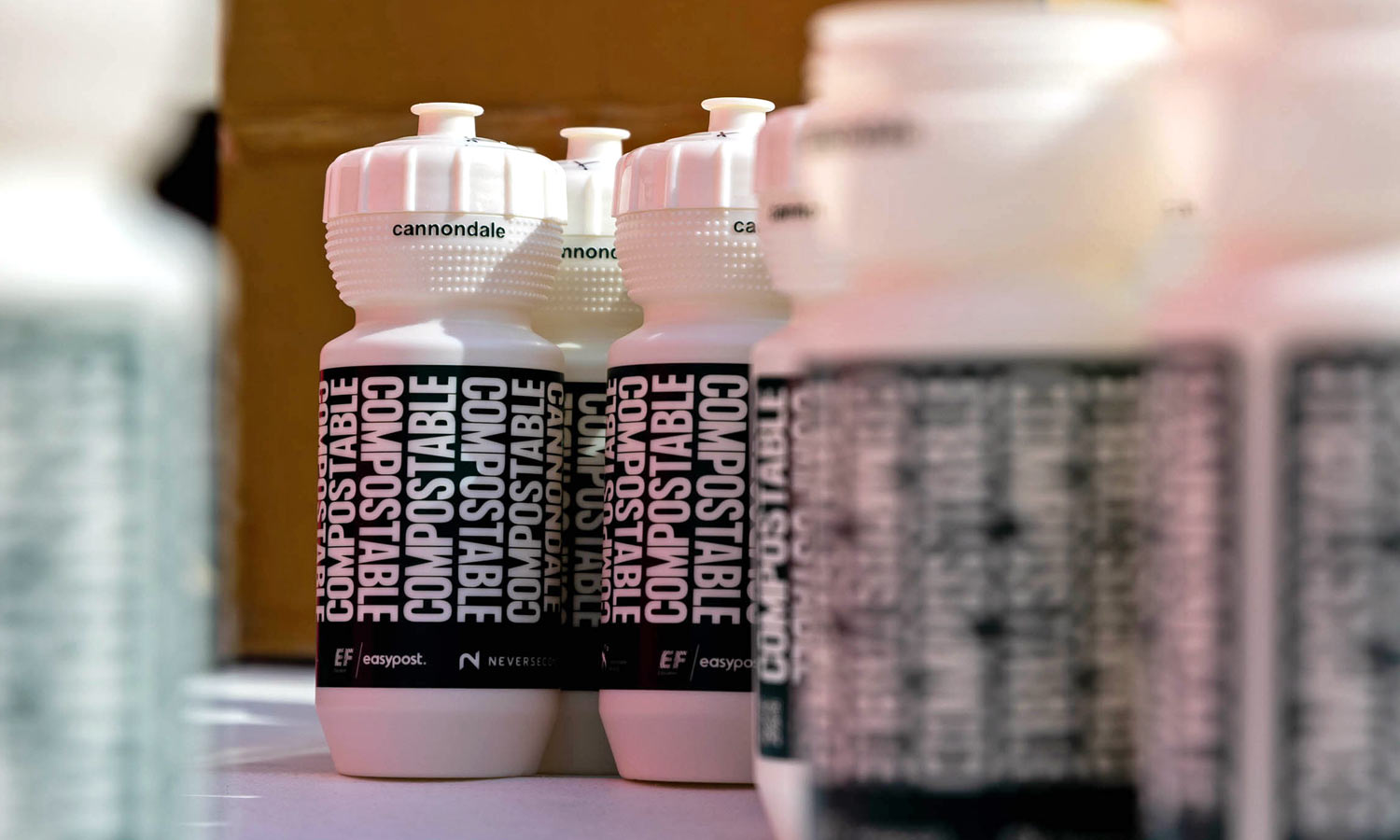Cannondale’s EF pro riders rolled out at the start of the Giro d’Italia with an all-new 100% Compostable Bottle. Cannondale calls the humble new team-only water bottles a small, but worthwhile step in giving cycling a more sustainable future, as almost every bottle in every race is used only one time before being discarded.
Did you know how many water bottles a professional road team burns through in a season?
Cannondale pro-only compostable water bottles
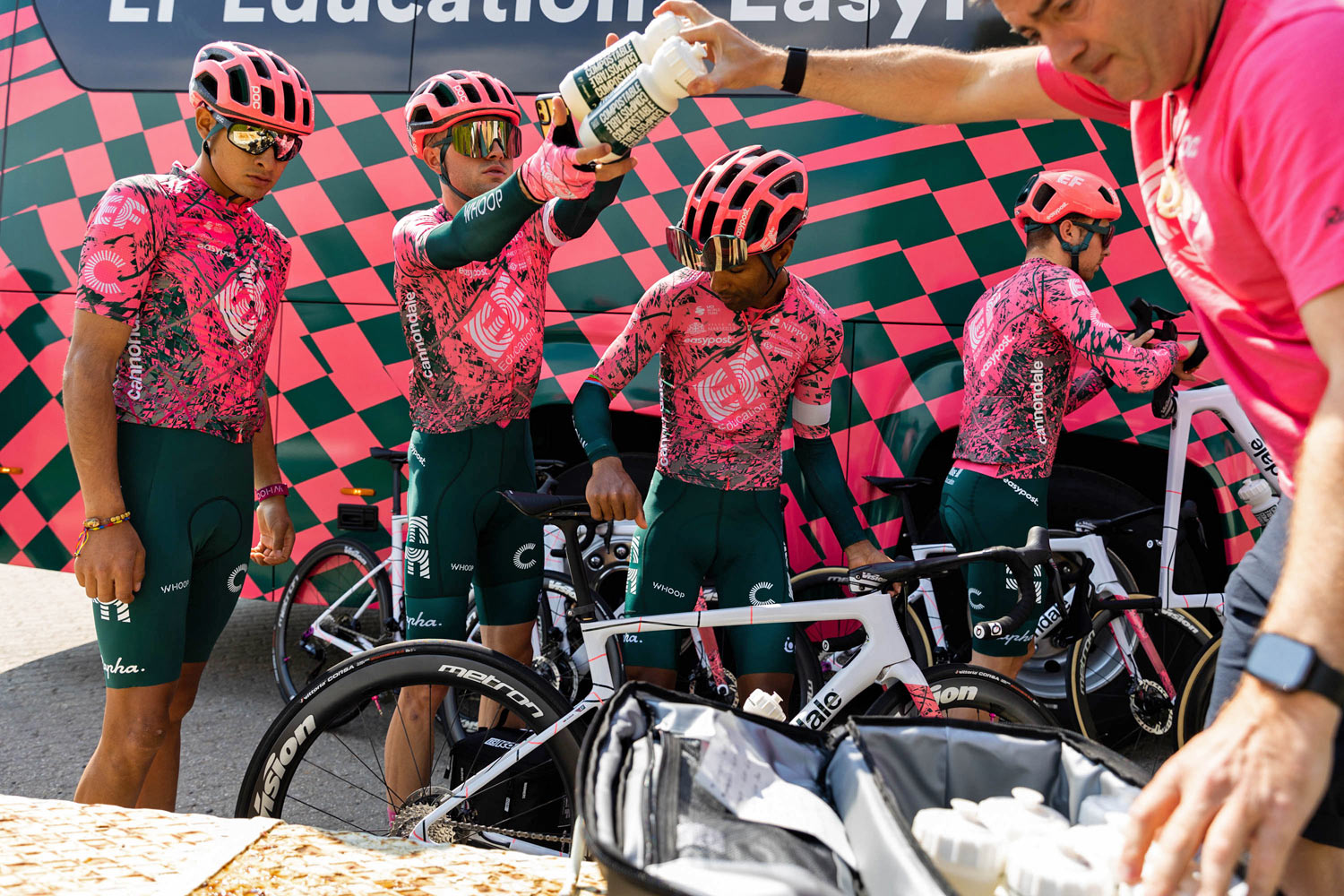
Cannondale says their combined EF Education-EasyPost men & EF Education-Tibco-SVB women consume 34,000 bottles every year. At the Tour de France alone, all of the 22 teams combined go through a surprising 70,000 in just three weeks. That comes out to an estimated 630,000 water bottles consumed in the pro peloton each year.
So that’s why from May, Cannondale is switching their teams to a new 100% Compostable Bottle as an alternative to single-use plastic bottles.
Wait, do pro riders really only use each bottle once?
Cannondale confirms that most plastic water bottles used in pro racing are in fact single-use. While you and I will clean our bottles after each use, getting a couple of years out of most bottles, pros most often now discard their empty bottles in a specified waste zone by the side of the road (vs. the old method of chucking them into the ditch anywhere in the recent past). Sure, some race staff comes by and picks them up these days, but due to hygiene concerns, these used bottles mixed from all riders in the race most often just get landfilled at the end of the day.
Tech details
OK, how much technology is there really in a water bottle? Here, it essentially breaks down to the material… and how it breaks down better. The new Cannondale Compostable Bottle is molded from an undisclosed plant-based material. Its body, bottle cap & bite valve are all produced without any polymer plasticizers, BPAs, or any heavy metals.
It is not in fact, the first biodegradable water bottle we’ve seen. Elite – who make many of the peloton’s bidons – has made biodegradable polyethylene bottles like the Jet from ethanol derived from sugar cane, and other bottles made from cornstarch for years. Our friends at Chimpanzee nutrition have supplied us with these sugarcane Tacx Shiva Bio bottles for several years, again a big pro peloton supplier – just not in their bio version.
All are said to decompose as quickly as 3 months in an industrial composting cycle (certified per European Compost Standard EN13242). Cannondale says in your home compost pile that would amount to around 1 year. Elite says a max of 5 years. But all of that is a lot better than the 100-1000 years a regular plastic bottle is said to take to fully break down.
Cannondale 100% Compostable Bottle limited availability
These Cannondale bottles won’t be for sale though, at least not in the near future. Their goal is solely in reducing the environmental impact of pro road racing for the time being. Cannondale even says they’ll offer up their compostable bottle to the entire roster of World Tour teams for those looking to minimize their impact from next season on.
Not surprisingly, these bottles do look a lot like the Fabric Gripper bottles with a modified valve – also owned by the same Cycling Sports Group parent as Cannondale. Gripper bottles are not biodegradable or compostable now, but we wouldn’t be surprised to see an eco version available in the future if Cannondale’s new bottles work out well for the EF teams this season.
